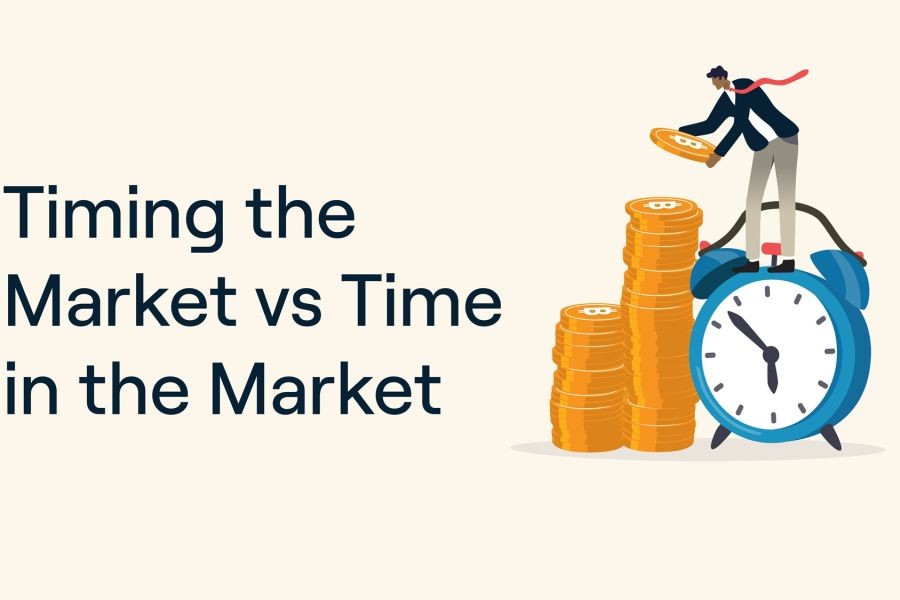In the world of investing, the allure of timing the market can be hard to resist. Many investors believe they can outsmart the market by buying low and selling high, only to find themselves caught in a cycle of uncertainty and potential losses. This article explores why the adage "time in the market beats timing the market" holds true, especially within the context of New Zealand's dynamic economy. Backed by data and real-world examples, we will delve into the strategic advantages of long-term investing, highlight the pitfalls of market timing, and provide actionable insights for venture capitalists looking to optimize their investment strategies in New Zealand.
Introduction
Imagine a scenario where an Auckland-based tech startup decides to time the market, hoping to maximize its investment returns. However, unforeseen global events cause market volatility, leading to significant losses. This isn't just a hypothetical tale; it's a reality many investors face, and it's why understanding the importance of time in the market is crucial. In New Zealand, where the economy is influenced by both local trends and global shifts, the debate between timing and time in the market is particularly pertinent.
According to the Reserve Bank of New Zealand, the country's economy has shown resilience, with a GDP growth rate of 2.7% in 2023, despite global challenges. This growth underscores the potential for long-term investment gains, further emphasizing the importance of time in the market. Join us as we explore why this strategy is a game-changer for Kiwi investors.
The Case for Time in the Market
Long-term investing provides several advantages, particularly in the context of New Zealand's economic landscape. Here are some compelling reasons why time in the market often triumphs over timing the market:
- Compound Interest: Over time, compound interest allows investments to grow exponentially. According to a study by Massey University, Kiwi investors who held their investments for over 10 years saw an average annual return of 7.5%, significantly higher than those who frequently traded.
- Market Volatility: Markets are inherently volatile. Attempting to time the market increases the risk of buying high and selling low. In contrast, a long-term approach mitigates the impact of short-term fluctuations.
- Cost Efficiency: Frequent trading incurs transaction fees and potential tax implications. Long-term investing reduces these costs, allowing more capital to remain invested.
Case Study: Fisher & Paykel Healthcare
Problem: Fisher & Paykel Healthcare, a leader in medical device innovation, faced market skepticism during the 2008 financial crisis, leading to a dip in share prices.
Action: Instead of reacting to market panic, the company focused on long-term growth strategies, investing in research and development and expanding its global footprint.
Result: By 2023, Fisher & Paykel Healthcare's stock price had increased by over 400%, proving the efficacy of a long-term investment approach.
Takeaway: This case study highlights the power of long-term strategic planning and the resilience it can offer against market volatility. New Zealand businesses can learn that patience and strategic investments can yield substantial rewards.
Data-Driven Insights
Data from Stats NZ reveals that the average holding period for New Zealand stocks is approximately six years. Those who maintain longer positions benefit from market recoveries and growth trends. Furthermore, a report by the Ministry of Business, Innovation and Employment (MBIE) indicates that sectors like technology and renewable energy are poised for significant growth, making them ideal for long-term investment.
Pros and Cons of Timing the Market
Pros:
- Potential for High Returns: Successful market timing can lead to substantial short-term gains.
- Flexibility: Allows investors to capitalize on market trends and shifts.
Cons:
- High Risk: Predicting market movements accurately is challenging and often leads to losses.
- Psychological Stress: Constant market monitoring can be stressful and lead to impulsive decisions.
- Increased Costs: Frequent trading incurs higher transaction costs and potential tax liabilities.
Common Myths & Mistakes
It's crucial to debunk common myths about market timing to help investors make informed decisions:
- Myth: "Professional investors always time the market successfully." Reality: Even seasoned investors often struggle with market timing. A study by the Reserve Bank of New Zealand found that only 20% of professional investors consistently outperform the market.
- Myth: "Market timing is essential for high returns." Reality: Long-term investments have historically outperformed market timing strategies, offering more stable returns.
Future Trends & Predictions
As New Zealand continues to embrace technological innovation, sectors like artificial intelligence and clean energy are expected to thrive. According to Deloitte's 2023 report, the country's tech sector is projected to grow by 8% annually over the next five years. By 2028, investments in these areas are likely to offer substantial returns for those willing to stay the course.
Conclusion
For New Zealand investors, the message is clear: time in the market often outpaces the elusive goal of timing the market. By focusing on long-term growth and leveraging the unique opportunities presented by the Kiwi economy, investors can navigate the complexities of the market with confidence. Ready to take the next step? Consider exploring New Zealand's burgeoning tech sector for your next investment, and stay informed by subscribing to our newsletter for the latest insights and trends.
People Also Ask
How does time in the market impact investments in New Zealand? Long-term investments in New Zealand tend to yield higher returns as they benefit from market recoveries and compound interest, as shown by a Massey University study.
What are the biggest misconceptions about market timing? A common myth is that professional investors can consistently time the market. However, data from the Reserve Bank of New Zealand shows that only a small percentage outperform the market consistently.
Related Search Queries
- Long-term investment strategies in New Zealand
- New Zealand stock market trends 2023
- Benefits of compound interest
- Market volatility and risk management
- Investment opportunities in NZ tech sector































